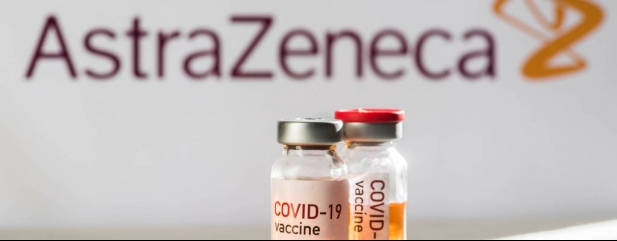Archived article
Please note that tax, investment, pension and ISA rules can change and the information and any views contained in this article may now be inaccurate.
AstraZeneca breakthrough makes up for Covid vaccine setback

Many of the Covid-19 headlines that pharma giant AstraZeneca (AZN) has attracted over the past 18 months haven’t really had much impact on its profits, but one recent development could potentially have a huge impact.
Results from the latest Phase III trial showed cancer drug Enhertu, which was licensed from partner Daiichi Sankyo (50/50 profit split), reduced the risk of disease progression or death in breast cancer by 72%.
AstraZeneca described the results in no uncertain terms, saying ‘these unprecedented data represent a potential paradigm shift in the treatment of HER2-positive metastatic breast cancer.’
Enhertu is a type of antibody drug conjugate which delivers a chemotherapy payload to cancer cells via a linker attached to an antibody that binds to a specific target.
Before the latest trial results were known, investment bank Berenberg estimated that the antibody drug conjugate market for cancer patients could grow from $3 billion currently to $15 billion by 2025, principally driven by the success of Enhertu.
The bank estimated peak revenues for Enhertu of $9 billion across different types of solid cancers which it reckoned could be worth around 574p per share on a risk-adjusted basis to AstraZeneca.
Given the success of the latest trial readout, it wouldn’t be surprising to see those numbers upgraded to take account of the implied reduced risk.
While that bodes well for AstraZeneca, investors might wonder why the company has been ignored in the latest talk on Covid vaccine booster jabs.
The Joint Committee on Vaccination and Immunisation has recommended a mix-and-match approach to the booster roll-out, using the Pfizer or Moderna vaccines, potentially leaving AstraZeneca out in the cold.
Investors shouldn’t automatically assume that the AstraZeneca/Oxford vaccine won’t work as a booster, according to Adam Barker at Shore Capital.
He told Shares it might be the case that the data isn’t yet sufficient to indicate how well the AstraZeneca/Oxford vaccine works as a top-up jab.
Mixing vaccines can promote a stronger immune response via something called ‘heterologous prime boosting’.
Also, the UK Government might have more supply of the Pfizer vaccine which it can use to undertake a swift booster roll-out, a key consideration.
Finally, the Government may be prioritising the AstraZeneca/Oxford vaccine for low-income countries given it is cheaper and is easier to transport.
The main justification for embarking on a booster programme is to prevent the NHS from getting overwhelmed and ultimately save lives. However, there isn’t conclusive evidence that boosters for vulnerable groups prevent hospitalisations.
Important information:
These articles are provided by Shares magazine which is published by AJ Bell Media, a part of AJ Bell. Shares is not written by AJ Bell.
Shares is provided for your general information and use and is not a personal recommendation to invest. It is not intended to be relied upon by you in making or not making any investment decisions. The investments referred to in these articles will not be suitable for all investors. If in doubt please seek appropriate independent financial advice.
Investors acting on the information in these articles do so at their own risk and AJ Bell Media and its staff do not accept liability for losses suffered by investors as a result of their investment decisions.
Issue contents
Editor's View
Feature
Great Ideas
- China exposure is a key risk for Lindsell Train Equity Fund
- Alliance Pharma's growth potential remains underappreciated
- Why this Japanese trust has gained 15% in a month
- Close to 50% gain from Equals since April, more to come?
- Want Asia exposure but worried about China? Try Vietnam
- A brighter outlook for property makes this 5% yielding trust a bargain
 magazine
magazine








